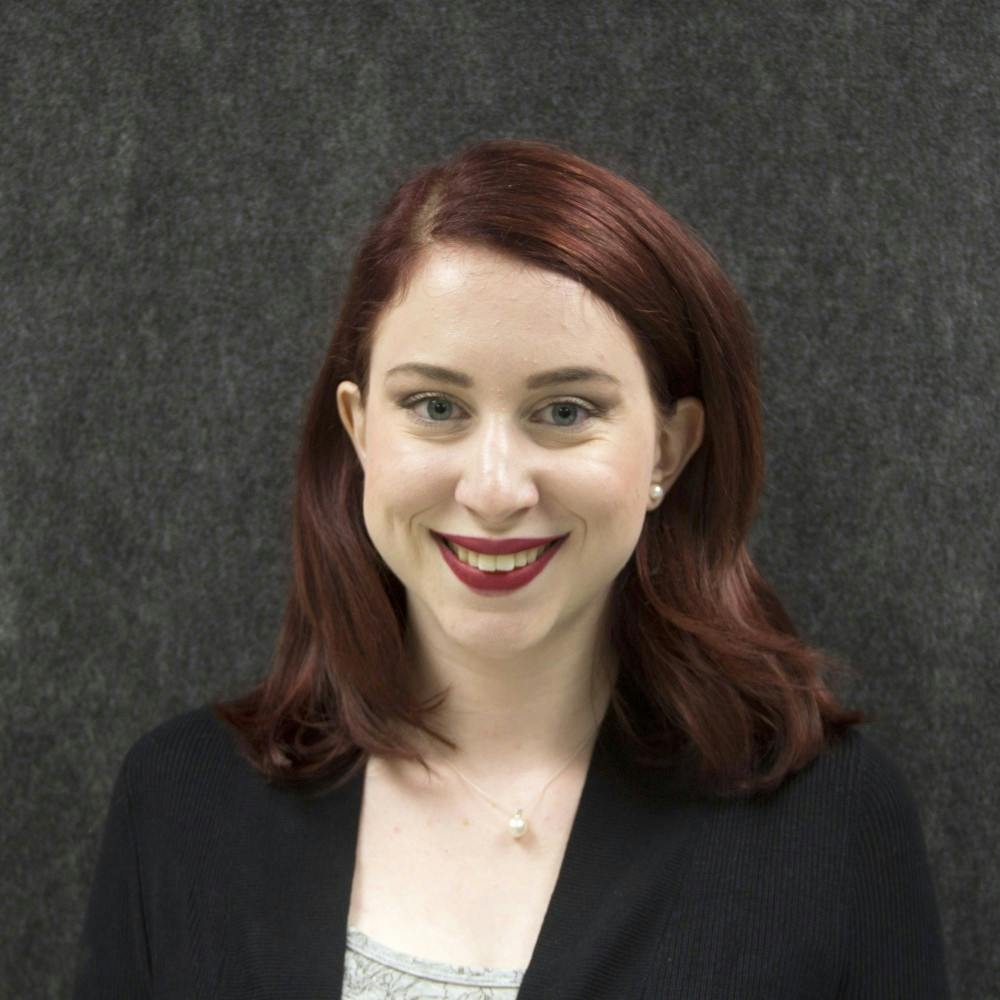When I first came out at 18, I told a few close friends I was a lesbian. Some were supportive, others were confused because I’d talked to them about liking boys before — so surely I must be bisexual, they insisted.
Shortly after coming out, I met a boy. He came into my life right after I had been rejected romantically by a girl who had been my best friend. I was vulnerable and lonely. No one, boy or girl, had ever given me a second glance. I was chubby, had cystic acne, thick glasses and a laundry list of mental health problems. So when he started showing interest in me, I had to convince myself to fall in love with a boy — something I have been forcing myself to do my whole life.
I remember when my friends started having crushes on boys in middle school. When we had sleepovers, they would ask me which boy from our class I liked. I knew I wasn’t interested in boys, but I couldn’t say that. So I would think, if I had a boyfriend, what traits should he have? I knew I liked people who were kind and smart and funny. And I had a general idea of which boys the other girls agreed were attractive. So every new school year I made a habit of finding a boy who checked off all those boxes and decided he was my crush.
Never mind the blonde haired girl who was first chair in orchestra and got all the leads in the middle school plays and made me blush when she told me she liked my dress. Or the brunette I met in high school with the big blue eyes who used to rest her head on my shoulder, making my whole body freeze up.
These feelings came naturally; I never had to convince myself to like a girl the way I had to convince myself to like boys. I knew that probably meant something was wrong with me. I kept reassuring myself that I surely would eventually like boys when I got older.
At 18, I walked hesitantly hand in hand with the guy who would become my first boyfriend. Before we got together, I repeatedly told him I was gay whenever he tried to flirt with me. But, deeply insecure and desperate for validation in any form, eventually I caved.
“So, uh, does this mean you’re bi?” he asked.
“I suppose,” I replied, giving his hand a half-hearted squeeze.
Coming out as bi felt like the safest way to come out — and for a while, it did feel right. But it wasn’t until I fell in love with a woman that I realized any attraction I ever felt towards men stemmed from a desire for approval and validation; from my peers, from society, from the guys I thought I liked in that way. For my entire life, I’ve been told I must like men, even when I tried to express my attraction to women. People allowed me to be attracted to women but insisted that I must like men, too.
I have cared for boys and maybe even have had half-hearted crushes on them, but I’ve never felt anything towards a man like what I feel towards women. Sure, they might have ticked off all the boxes — smart, funny, kind, objectively attractive — but there was never that elusive spark. With guys, I always felt like something was missing. I thought I was in love with my first boyfriend. And while I felt love for him, I wasn’t in love with him.
It took falling in love with a woman for me to realize that.
The first time she hugged me was better than the best kiss I’ve ever had with a man. And when I kissed her, I suddenly understood what all those love songs were about.
And when I fell in love with her, it was like my world stopped. Suddenly everything made sense. I fell for her like a schoolgirl feeling the feverish, intoxicating swell of love for the first time. She was the first person I ever felt like I could see myself marrying and having children with — things I was disinterested in when I was younger. In hindsight, it’s obvious why; it’s not that I don’t want to get married or have children — I just couldn’t picture myself doing those things with a man. And now that I’ve realized that, I can’t wait to share these experiences with a woman someday.
Your first love is rarely your forever love, something I learned the hard way. And as tumultuous as our relationship ended up being, it helped me realize something vital about my identity. Something I’ve always known, deep down, but ignored. I let others define my identity for me because I was never sure enough in myself to trust in my own truth. And after so strongly identifying as bisexual for so long, I felt like people would think I was a fraud if I admitted that isn’t really who I am.
But I realized the only way to truly be a fraud is to be dishonest about who you are, to choose a label that is easier for others to accept and understand rather than the one that feels truest to you.
Every time I tell someone I am a lesbian, it’s like this huge weight lifts off my shoulders. It’s like all those years of doubt and insecurity melt away, and I finally I get to stand tall and say: this is who I am.
Maddy Fowler is the editorial editor and can be reached at maddy.fowler@ubspectrum.com or @mmfowler13 on Twitter.





